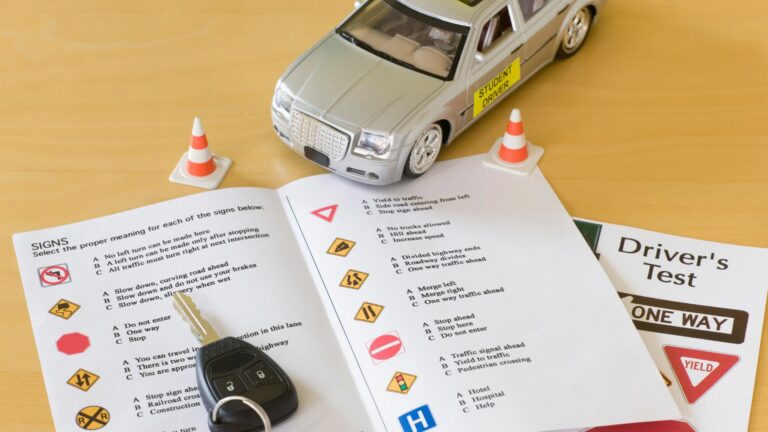Consejos para reducir el consumo de gasolina en furgonetas
The consumption of gasoline in vans can represent a significant expense for owners and companies. In a context where sustainability and the reduction of environmental impact are priorities, it is essential to implement strategies that help to reduce gasoline consumption. By adopting some driving habits and performing adequate maintenance, it is possible to maximize fuel efficiency, which not only contributes to economic savings but also benefits the environment.
Gasoline consumption is a constant concern for van owners, not only due to the economic impact it represents but also because of its effect on the environment. Through appropriate strategies and driving habits, it is possible to reduce fuel consumption and optimize the efficiency of these vehicles. This article presents practical tips that will facilitate the task of saving gasoline in vans, from proper maintenance to changes in driving style.
Regular Maintenance
The key to a good gasoline performance in a van starts with regular maintenance. This includes checking the air and oil filters, as well as inspecting the injection system. A clean and well-functioning engine is essential to maximize energy efficiency. Performing adequate maintenance helps keep gasoline consumption at low levels.
Vehicle Configuration
The choice of appropriate tires is another crucial action. Make sure the tires are properly inflated and in good condition, as deflated tires can increase rolling resistance and, consequently, gasoline consumption. Additionally, it is advisable to reduce unnecessary weight in the van, as every 100 kg of additional load can increase fuel expenses by 1%.
Driving Style
A significant aspect in reducing gasoline consumption is the driving style. Maintaining a constant speed and avoiding sudden accelerations and abrupt braking contributes to a more efficient use of fuel. Opting for smooth driving and anticipating traffic actions can make a big difference. Implementing these habits not only saves gasoline but also enhances driving safety.
Route Planning
Route planning is essential to optimize fuel consumption. Using apps to optimize routes can be very helpful, thereby avoiding congestion and unnecessary detours. By choosing routes that reduce distance and time on the road, fuel expenses can be decreased. It is also advisable to avoid frequent starting and stopping, which can negatively affect engine performance.
Use of Technology
Modern vans often feature advanced technology that allows monitoring of fuel consumption. Some models have systems that help drivers become more aware of their driving and offer suggestions for improvement. Evaluating the efficiency of your own vehicle can be key to identifying areas for improvement. This evaluation can be done by following guidelines available in external resources such as this link.
Speed Reduction
Driving at moderate speeds is not only good for safety but also helps to reduce gasoline consumption. Often, most studies suggest that exceeding 90 km/h can result in a significant increase in fuel expenses. Respecting speed limits is not only safer but also contributes to a more efficient use of fuel.
Final Considerations
Consistently implementing these tips can make a significant difference in the gasoline consumption of your van. From keeping the vehicle in optimal condition to adapting the driving style and route planning, every little change counts on the way to more effective fuel savings. Don’t forget that care and attention to the vehicle will translate into economic benefits and a lower environmental impact. For more information on myths related to fuel consumption, check this article, or on how to maintain fuel economy in this other one.
Optimizing gasoline consumption in vans is essential not only to save money but also to contribute to a more sustainable environment. With a series of simple practices, fuel efficiency can be significantly improved, resulting in lower carbon emissions and a reduced environmental impact.
One of the most effective strategies is to maintain a constant speed while driving. By avoiding sudden accelerations and unnecessary braking, gasoline performance can be improved. This approach not only saves fuel but also provides a smoother and more comfortable driving experience. Additionally, driving at moderate speeds can make a big difference in consumption.
The regular maintenance of the van also plays a crucial role in reducing gasoline consumption. Checking the engine, tires, and other components regularly ensures that the vehicle operates under optimal conditions. A well-maintained engine, for example, will have more efficient performance and use less fuel. Ensuring that the tires are properly inflated and suitable for the weight of the van can also result in more efficient fuel use.
Changing certain driving habits can contribute enormously. Anticipating maneuvers instead of reacting quickly prevents jerky movements, which is essential for improving fuel economy. A smoother and more conscious driving style can lead to significant savings in the long term.
Finally, considering the weight of the vehicle is vital. Reducing unnecessary weight in the van not only improves fuel economy but also enhances vehicle safety. Implementing these tips can help maximize gasoline efficiency and, as a result, improve both the economy and the environmental impact of each trip taken.



